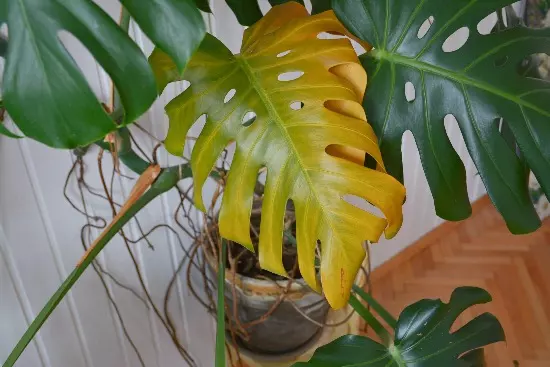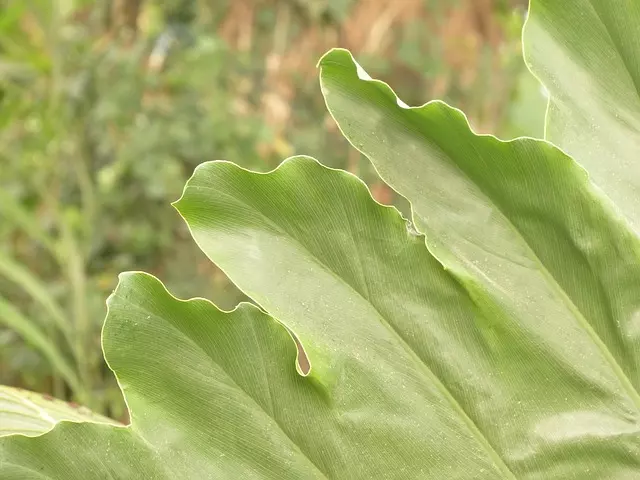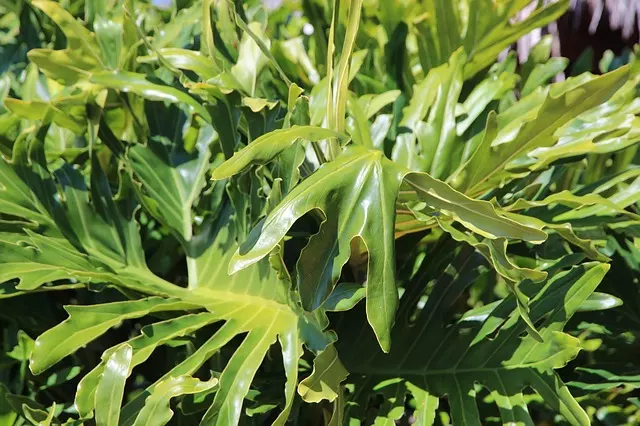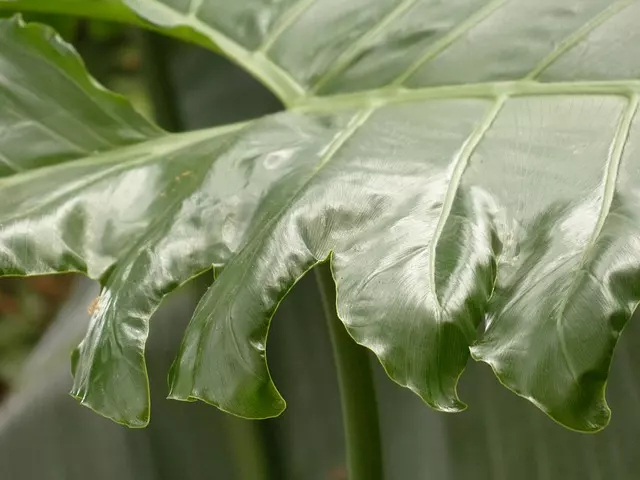Philodendron is one of the species of the head for lovers of indoor plants. Something perfectly logical if we take into account that, in addition to its beauty, we are talking about a plant with simply spectacular growth. Philodendron is therefore perfectly normal to be alarmed when our philodendron has yellow leaves. A real alarm signal that we are making a mistake in its cultivation. Learn all about the Philodendron yellow leaves and how to fix them in this article.
Table of Contents
What Causes Yellow Leaves on Philodendron
What Causes Yellow Leaves on Philodendron? Philodendron yellow leaves are part of the natural aging process of the leaves, the problem arises when we see many yellow leaves on the philodendron at the same time. Yellow leaves on Philodendron can be due to many factors that we will explain step by step, continue reading and learn all about yellow leaves on philodendron.
Philodendron Yellow Leaves – Excess Watering
Philodendron yellow leaves due to excess watering. This is undoubtedly the most common reason for our precious plant to have this problem. We tend to believe that, because of its tropical origins, the Philodendron demands too much watering. Indeed, Philodendron does not tolerate extreme drought, but neither does it tolerate waterlogged soil. That is why Philodendron must have very good drainage and a suitable substrate.
Finding out why our Philodendron has yellow leaves starts with checking its watering. The best way to do this is to touch the substrate. If we insert a finger, and it is dry, our Philodendron is likely going thirsty. If, on the other hand, it is too wet or the water is not draining properly, it is more than likely that the yellow leaves of the Philodendron indicate waterlogging.
But how to tell the difference? By knowing which leaves change color according to each scenario. When the Philodendron is suffering from drought, this color change usually occurs at the edge of the leaves along with the brown. If it is subjected to an excess of water, Philodendron will be the lower and new leaves that are colored yellow. If this is our case, we will not only have to water less intensively.
We will be able to check if our Philodendron lacks water, humidity, light, or pH with a tester that fulfills several functions. This type of tester does not use a battery and can always monitor our Philodendron to prevent yellow leaves. Learn more about how to measure soil pH.
No products found.

Philodendron Yellow Leaves – Lack of Humidity
Recall that the Philodendron is a plant of tropical origins. Also, although that is not particularly significant in terms of watering, it is significant in its demand for environmental humidity. To be healthy and maintain the vigor of its characteristic green, the Philodendron needs a certain humidity in the space where it is. When this is not given, Philodendron can manifest itself by changing the coloration of its leaves.
If we live in a humid climate, this is probably not the reason for the yellow leaves on Philodendron. However, if we live in a dry climate or during the heating months, we will have to create that much-needed humidity around it. This can be done in several ways. We can opt for the use of a humidifier, group Philodendron with other plants to get more moisture, or, finally, create that humid atmosphere with the traditional dish with pebbles and water.
Philodendron Lighting Problems
The Philodendron likes abundant, indirect light. And, while it can live in less well-lit spaces, this can cause its leaves to lose coloration. One of the ways to show this lack of light is to make its characteristic green color fade, but also to color its leaves yellow.
Warning: if the Philodendron is exposed to direct sunlight, the leaves may also turn yellow. In this case, the color change is usually accompanied by a brownish hue.

Philodendron Yellow Leaves – Inadequate Repotting
Philodendron yellow leaves due to inadequate repotting: This is probably the easiest reason to identify. If after repotting, our Philodendron begins to present this type of leaves, it is that something has failed during the task.
Perhaps it was not the ideal moment for such a task, perhaps we have not provided our plant with the correct drainage or, on many occasions, we have not been right with the type of substrate. The appearance of these yellow leaves is nothing more than a way of telling us that it has suffered a repot shock.
If this is our case, unfortunately, we will not be able to repot Philodendron for the moment since it will only increase its stress. We can only take care of her so that she can gradually return to normal. If it has bad drainage, making more holes in the pot. If we have subjected it to a change of place, placing it again in the original one.
Lack or Excess of Fertilizer in Philodendron
This is another simple reason to identify. If our Philodendron has been with us for some time, and we have not fertilized it, it is more than likely that the appearance of these leaves is a screaming request for nutrients. The solution is simple: just maintain a regular pattern of fertilizer for green plants, diluted in the irrigation water.
But be careful, because we can find ourselves in another scenario. We are referring to having already fertilized our Philodendron and, even so, detecting yellow and sickly-looking leaves. If that is our case, we may have exceeded the fertilization pattern of the plant. If so, we will have to suspend fertilization for at least three months and, if the plant is in good general condition, we will have to repot to renew the soil. Learn more about Nutrient deficiency in plants.
- PLANT FOOD FOR INDOOR PLANTS: Big Green Leaves treats over 44 gallons of water at full strength. Promotes fuller, greener leaves and vigorous growth. Supports resilience from root to stem to leaf.
- BETTER THAN LIQUID FERTILIZERS, SPIKES, AND TABLETS. Most houseplant fertilizers only provide 3 basic minerals. Big Green Leaves is loaded with essential superfood nutrients (minerals, vitamins, amino acids, organic biological compounds, and antioxidants). A concentrated 12-4-8 NPK plus organically-bonded micro-nutrients (magnesium, boron, iron, copper, manganese), and botanical sea kelp.
- EASY APPLICATION. Pre-measured scoop included. Mix 2 scoops (tsp) per gallon of water. Use for watering every 7-14 days during the growing season. (100% water soluble instant feed). Resealable bag for clean, dry storage that will outlast any liquid plant food.

Changes in Plant Temperature
As a good tropical plant, the Philodendron does not tolerate temperature changes very well. One of its main enemies is drafts. Something that, although it may seem unimportant, is also the reason for the yellowing of the leaves.
If we detect that this is, precisely, the problem of our plant, the ideal is to look for another more comfortable location.
Pest Problem on Philodendron
The presence of pests is also responsible for the Philodendron having yellow leaves. For that reason, and discarding all the previous reasons, it is important to see if our plant is suffering the attack of mites and aphids.
In this case, we can use neem oil to combat pests, here is our article on how to mix neem oil for plants.
Now you know all about Philodendron yellow leaves, you just need to apply the solution and continue to enjoy your beautiful plant.


